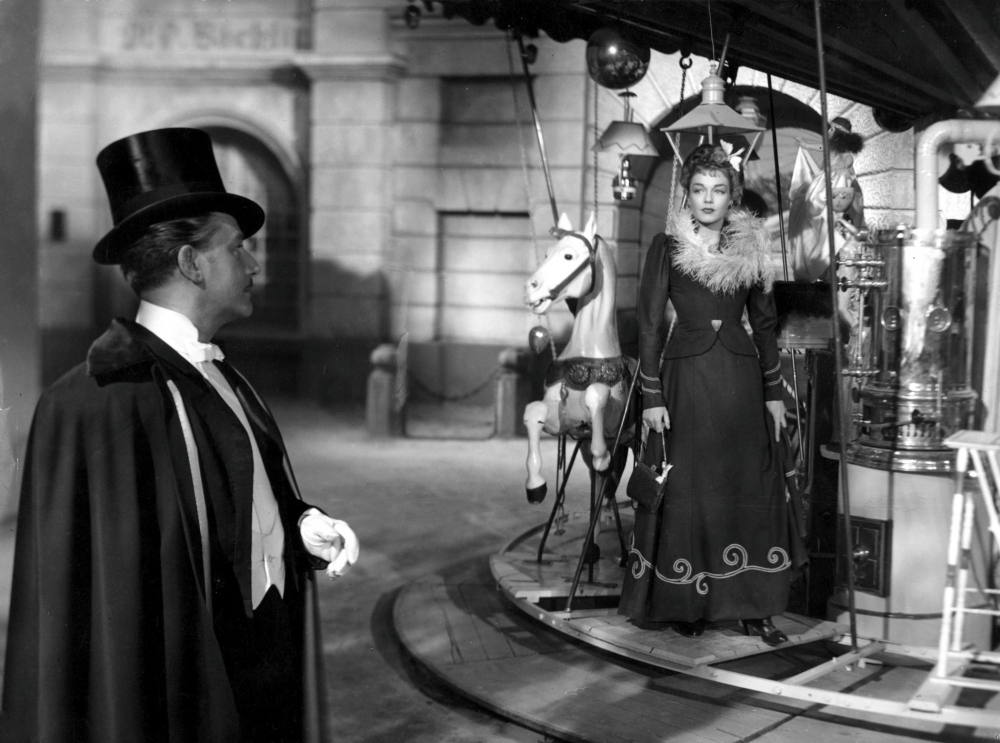
An all-knowing interlocutor guides us through a string of affairs in fin de siècle Vienna. Soldiers, chambermaids, poets, prostitutes, aristocrats – all revolve equally around a circle of interconnected love.
“I adore the past, it’s so much more restful than the present and so much more certain than the future.”
Anton Walbrook as the meneur de jeu
« Je vous raconte mon premier souvenir de cinéma. J’étais tout petit: c’était à Worms, pendant la foire, sous une tente. Sur l’écran, on voyait un bonhomme derrière un bureau: il avait mal à la tête et paraissait complètement affolé; il écrivait quelque chose, il fumait nerveusement, il était en colère et tout à coup il a pris l’encrier et a bu l’encre: alors il est devenu tout bleu. Ce film m’avait énormément impressionné parce qu’il était, surtout pour un enfant, totalement féerique et invraisemblable: comment, en buvant de l’encre, peut-on devenir tout bleu? Une fois rentré chez moi, je dois avouer que j’ai essayé à mon tour; j’ai bu de l’encre: seule ma langue est devenue bleue, rien d'autre n’est arrivé. Voilà mon premier souvenir de cinéma. »
Max Ophüls in an interview with Cahiers du Cinéma1
“Montage tends to suspend time in the limbo of abstract images, but the moving camera records inexorably the passage of time, moment by moment. As we follow the Ophulsian characters, step by step, up and down stairs, up and down streets, and round and round the ballroom, we realize their imprisonment in time. We know they can never escape, but we know also that they will never lose their poise and grace for the sake of futile desperation. They will dance beautifully, they will walk purposively, they will love deeply, and they will even die gallantly, and they will never whine or whimper or even discard their vanity.”
Andrew Sarris2


